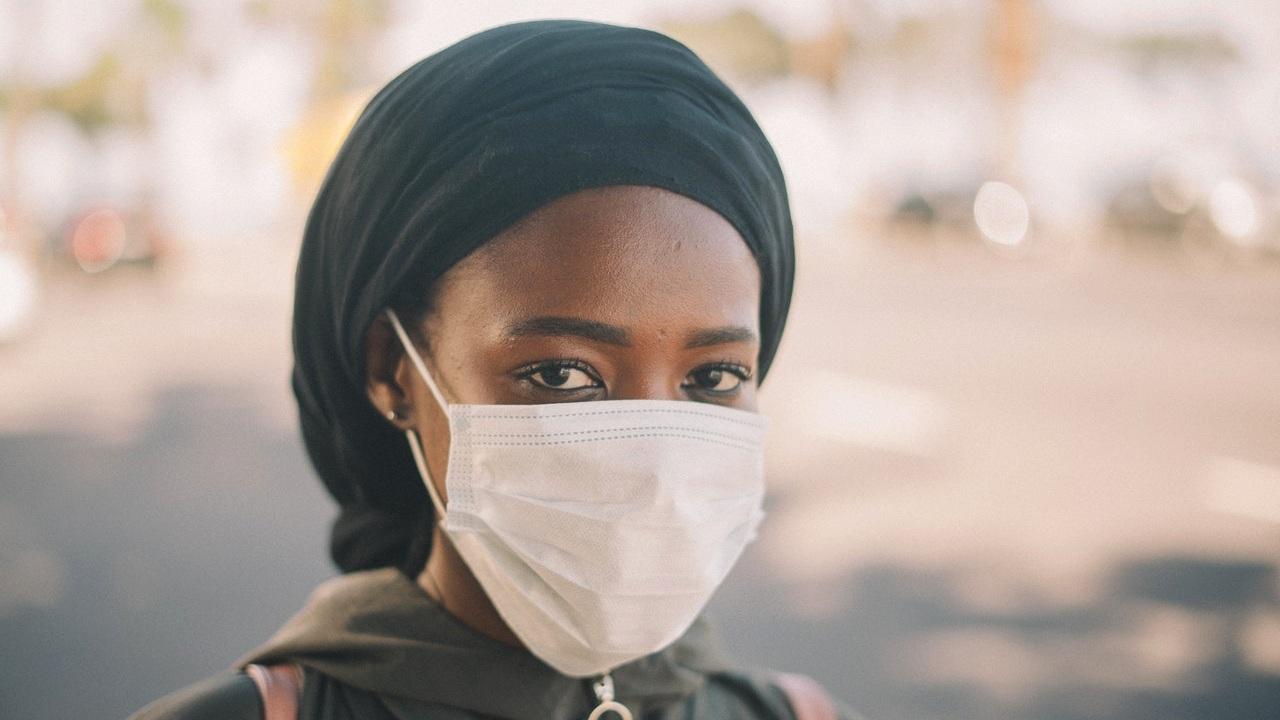Africa is often framed as a “hot spot” of emerging infectious diseases, based on ill-informed and colonial understandings of zoonoses and their origins. A more accurate picture of what drives a virus with pandemic potential should instead focus on global financial centres that promote destructive forms of development. To better address known and future health concerns in Africa, a narrative change is needed that links evidenced research to the relationship between the environment, livestock, wildlife and growing economies.
This article is part of the series “Rethinking zoonoses, the environment and epidemics in Africa”, which examines the effect of changing relationships between human, animal and environmental health on epidemic risk.
The myth of a Pandora’s box in Africa
Africa, the world’s second largest continent in size and population, comprises 54 countries – a surprise often to the so-called developed world, where ignorance abounds of Africa’s peoples, geographies, culture, beliefs, complexity, nature, ecosystems, civilisation and economic and socioecological potential. This is also true for the conception of emerging human diseases and zoonosis with the potential for a pandemic, which are so topical in this era of COVID-19. Rightly or wrongly, Africa has often become a focus of concern on this topic. This is despite Africa’s experience of COVID-19 defying the Global North’s expectations, whose perceived vulnerabilities to the pandemic’s spread failed to translate into negative impacts comparable to advanced economies.
It is the common false belief that the poor and the primitive must suffer, unless they follow a long-driven “western” pathway to a “nirvana” of political economy. Given untruths about Africa and its role in the spread of infectious diseases, and much of the false-narrative on how and where novel diseases emerge from, there is an urgency for setting some counter-narrative, based on scientific truths rather than prejudice.
Often the origins of the pathways to disease we all fear are not in the equatorial forests of Africa but the corridors of economic power and influence on global development. For example, Hong Kong was the first victim of bird flu at the turn of the twenty-first century – a region that is a conduit for global finance driving Southeast Asian poultry development and, consequently, the highly pathogenic avian influenza it creates. A better understanding of this subject must then start with defining, clearly and precisely, what we mean when we talk about emergent diseases and those arising from animals.
Zoonosis is defined as a naturally transmissible infection of a pathogen from an animal to a human directly, such as rabies. Commonly the term also extends to infections spread indirectly through the environment, for example in food, by insect vectors or in the environment itself. While emerging infectious diseases of humans cover a wide spectrum of, mostly, not-new infections (such as Lassa Fever, Ebola, Chikungunya, Zika and antimicrobial resistance) across new geographies, it also includes new and rare pathogens of humans, like MERS-CoV and COVID-19.
COVID-19 is by WHO definition strictly speaking not a zoonosis. Rather the virus is a proven “reverse zoonosis”, documented to transmit readily from humans to animals, with rare examples of zoonosis, passed from fur farm mink and pet hamsters to humans. Meanwhile, it is clearly an emerging infectious disease transmitted human to human. The origins of COVID-19 are currently unknown; a progenitor link to bats as an animal source is frequently quoted but remains unproven, and current evidence allows the possibility that it might equally have arisen from a wide range of species (or even a laboratory). There is, however, good evidence that Huanan Seafood Market in Wuhan, Central China, was the point source for the pandemic, where the index case transmitted to the community. Whether this was an animal source at the market or just the beginning of a superspreader event of human-human infection remains unknown.
Atypical zoonosis can baffle scientists and go against the expected norm. The emergence and rapid spread in late 2002 of Severe Acute Respiratory Syndrome coronavirus-1 (SARS-COV-1) was considered a spillover event from civet cats to humans in Guandong market, China. It emerged suddenly and spread globally via Hong Kong and was declared to be contained by the World Health Organization (WHO) on 5 July 2003. No cases of SARS have been reported since 2004. The question then arises, why does this virus from animals no longer infect humans?
With this background, we can easily see how scientists, media and the public alike, with superficial knowledge of the subject, can easily jump to conclusions and spread untruths, along old prejudice. At least this time Africa is not to blame for a global pandemic.
The racist, colonial but highly publicised and criticised 1899 treatise Heart of Darkness by Joseph Conrad inspired western countries to blame Africa for most emerging and epidemic infectious diseases affecting humans arising over the last century. This continues today, with Africa described unfairly as a “hot spot”. There are many examples of scientists, such as the so-called “virus hunters”, who postulate from their computers and modelling in capital cities scary narratives on Africa. This has led to investments in precarious, suspect and potentially risky field and laboratory research practices over decades. Until recently, Africa has been barely able defend itself academically or politically.
However, we should continue to ask pertinent questions: where did Measles or the Plague come from, and what about Dengue and influenza pandemics? What about other important human infectious diseases that cause much morbidity and mortality, such as Epstein-Barr virus, hepatitis B and C virus, human papillomavirus, MERS coronavirus and Methicillin-resistant staphylococcus aureus? None of these diseases have cryptic wildlife or Africa-related origins. HIV origins are rooted in Africa, and Ebola virus too, but the latter is a rare zoonosis, causing local outbreaks, and has not as-yet become a pandemic disease. What this evidence supports is that Africa is not, after all, the ultimate source of disease from its abundant nature, natural settings, wildlife and peoples. But that does not mean it should be ignored either.
To reinforce this message, we can turn to the so-called “bush meat” story (only “primitive” people kill animals) as the source of emerging infectious disease reinforced by the Ebola narrative, reiterated from our highest-rated academic journals and institutions. For example, Bernstein et al. state in what is in many aspects a good paper that one of “the three main drivers of pathogen emergence are … wildlife trade and hunting”, with a clear inference to bush meat. This observation does not square with our recent International Union for Conservation of Nature (IUCN) situation analysis on wildlife and human disease.
Our forensic scrutiny of over 5,000 publications on human disease and wildlife trade (of which bush meat is a part), turned up just 1.6 confirmed zoonosis events per year over 28 years from wildlife trade. This is out of an estimated 2 billion zoonosis cases a year globally from animals. Most these cases are from animal-based-food systems and insects and, unsurprisingly, not all are from Africa. If this frequency is the basis of the use of terms such as “main driver”, we must question the whole premise upon which the case is argued and modelled. We do agree with the supposition that the other two main drivers of pathogen emergence are “agricultural intensification and expansion, and … destruction of tropical forests”, and Bernstein and others are right that we need to invest in the right place to prevent, where possible, emerging pathogens and pandemics. But this is where the argument must now focus more precisely.
How animal-based-food systems and landscapes evolve and change lies at the root of most emergent zoonotic pathogen challenges. These changes are driven from the very offices in London, New York and Beijing that finance and promote development (“civilisation”?) and are, therefore, the very epistemological and causative root to these problems.
Africa does have some “residual” zoonosis that urgently needs attention and finance, such as rabies and zoonotic tuberculosis, where a large proportion of global cases occur. However, this is more about a lack of focus on domestic dogs and cattle disease, health systems capacity and poverty. It is not an issue of wildlife or traditional values and indigenous cultures. Indeed, economic development will help health systems in Africa. But this should not be at the whim of developed nations or their health agendas and at a cost to people, culture, biodiversity and the environment, or contribute to new problems, such as climate change.
We share the approach of Bardosh and others that promotes a new vision of Africa and the need for narrative change in the context of zoonosis. They argue:
“that bridging the research-policy-action interface in Africa, and better connecting zoonoses, ecosystems and well-being in the twenty-first century, will ultimately require greater attention to the democratization of science and public policy.”
Indeed Africa has its own share of common infectious diseases, including malaria, HIV-AIDS-TB combination and regional outbreaks of local zoonotic infections. These continue due to poorly resourced public health systems. Learning lessons from Ebola, and African leadership increasingly taking forward a “One Health” approach for tackling zoonotic pathogens with epidemic potential, will no doubt decolonise the negative western narrative on zoonosis on the African continent.
Declarations/acknowledgements
Professor Richard Kock, Professor Francine Ntoumi and Professor Sir Alimuddin Zumla are co-principal investigators of the Pan-African Network on Emerging and Re-Emerging Infections (PANDORA-ID-NET – https://www.pandora-id.net/) supported by the European and Developing Countries Clinical Trials Partnership the EU Horizon 2020 Framework Programme EDCTP). Sir Zumla is in receipt of a UK NIHR Senior Investigator Award.
Featured photo by Ashkan Forouzani on Unsplash.
Hero photo by RF._.studio from Pexels.






Africa will be taken seriously, when Africans themselves take charge of their destiny and make The well being of their citizens a core element . We are endowed with rich resources which if used prudently can defy any challenges that Africa may face; including negative perceptions!